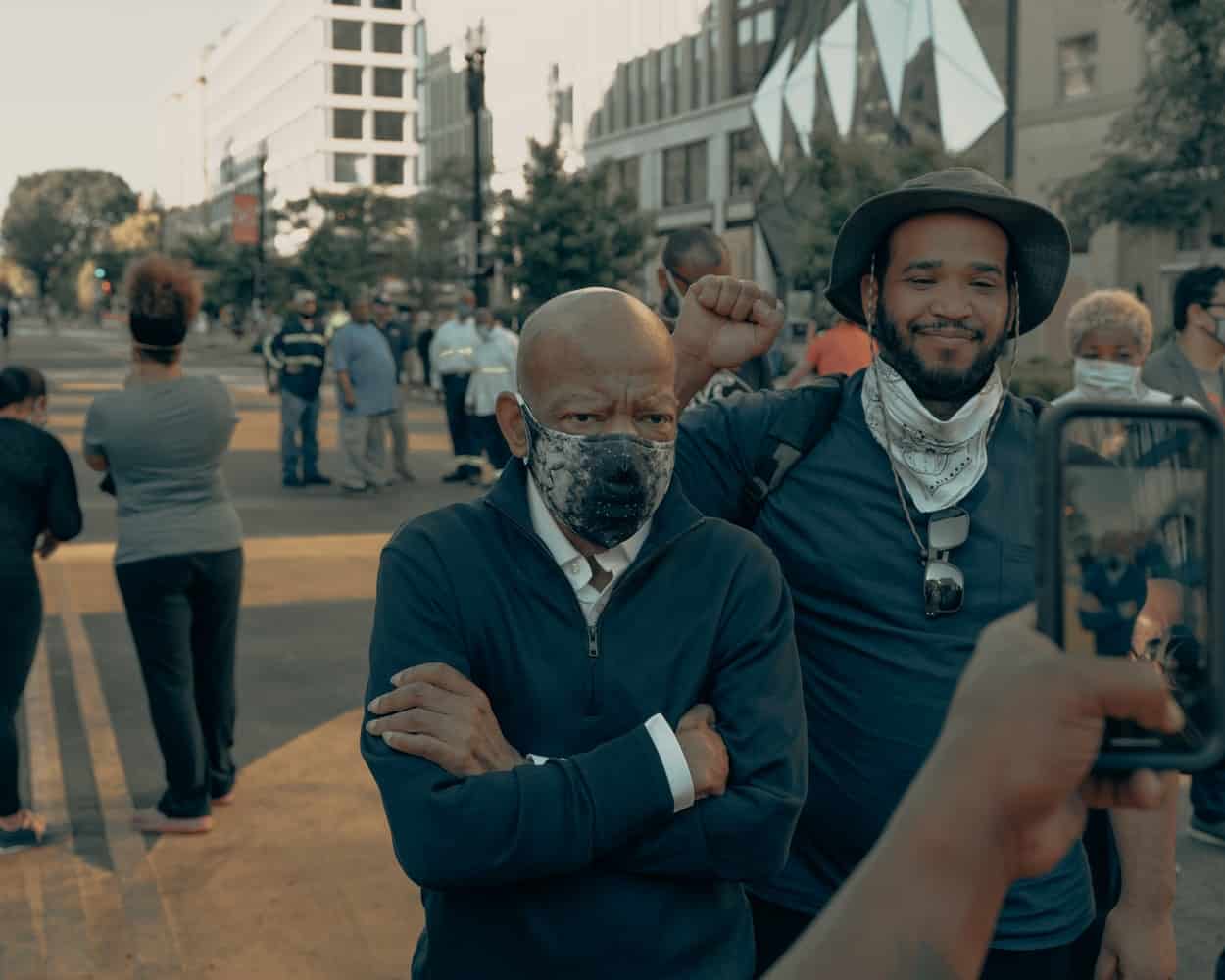
Courtney Brunson is a student at Harvard Law School and member of the Harvard Legal Aid Bureau.
News emerged late Friday evening that two prominent civil rights icons who worked alongside Dr. Martin Luther King Jr., Reverend Cordy Tindell “C.T.” Vivian and Congressman John Lewis, have died. Rev. C.T. Vivian died at the age of 95. He is best known for his participation in the Freedom Rides, a series of political protests against segregation by civil rights activists in buses throughout the American South in 1961, and his founding of the National Anti-Klan Network.
Congressman Lewis died at the age of 80 after a six-month battle with pancreatic cancer. In 1963, John Lewis spoke at the March on Washington, a large-scale demonstration that took place one hundred years after the Emancipation Proclamation. The protest sought to advocate for political and economic justice for African Americans, which included many labor-related issues that black people in this country face, such as high levels of unemployment, poor job mobility, and low wages. Serving more than three decades as a House representative for Georgia’s 5th Congressional District, John Lewis supported various labor issues, including through his advocacy for workers in the airline industry during their disputes with Eastern Airlines and Delta Airlines. Many Members of Congress have paid their respects following Lewis’s death, some of which include those who stood in direct opposition to the very issues he advocated for. Senate Majority Leader Mitch McConnell, for example, released a statement that spoke about the history and justice Congressman Lewis helped usher into our country, while the bill restoring the Voting Rights Act that Congressman Lewis presided over when in passed in the House has yet to be taken up in the Senate.
As low wage workers continue to bear the brunt of the reopening of businesses while the COVID-19 pandemic continues, the New York Times wrote about the experiences of janitors throughout the country. After conducing various interviews, writer Jodi Kantor learned that many sanitation workers have not been given adequate resources to do their jobs. This has led to janitors across the country, from Austin Texas to Los Angeles, California, testing positive for the virus themselves. Workers in office buildings, supermarkets, and even airplanes have also said that they lack the time, training, and resources to do their jobs effectively, which continues to put others at risk.
Months into the crisis, the federal government has still failed to step in to establish best practices for businesses to follow. The Centers for Disease Control and Prevention have only provided general recommendations, while the Occupational Safety and Health Administration (OSHA) has investigated “only a small fraction of virus-related complaints,” according to a spokeswoman. Mary Kay Henry, President of the Service Employees International Union, which represents 375,000 of the nation’s custodians, said that the reopening plans have been occurring “without much thoughtfulness for cleaning standards.” She has been advocating for better standards at the state and city level and a certification system to ensure that sanitation workers and all customers are better protected.
In other medical-related news, U.S. Customs and Border Protection (CBP) has placed a “detention order” on imports of products made by Top Glove. Top Glove is the world’s largest manufacturer of medical gloves and is based in Malaysia. According to reports by the Thomson Reuters Foundation in 2018, Top Globe has allegedly been committing various labor abuses, including forcing migrant workers to work long hours for low wages. Though the global demand for protective gear has increased due to the pandemic, labor activists have encouraged industry investors to do more to discourage these companies from continuing to exploit their workers.
Finally, White Castle, an American regional hamburger restaurant chain with 377 locations across 13 states, has officially introduced a “burger-grilling robot” named Flippy. The company announced this past Wednesday that it has partnered with Miso Robotics, a California-based startup, to introduce the robot as an automated kitchen assistant. Lisa Ingram, CEO of White Castle, said in a statement that the company is “thrilled to bring the future into our kitchen with solutions that will transform the industry and make the White Castle experience all that it can be for generations to come.” The companies assert that the robotic workers could prevent the spread of food-borne pathogens by ensuring that the burger meat it serves to customers is not undercooked. However, there still remains the legitimate concern that the automation of burger flipping could inevitably lead to the loss of jobs in the fast food industry.






Daily News & Commentary
Start your day with our roundup of the latest labor developments. See all
July 4
The DOL scraps a Biden-era proposed rule to end subminimum wages for disabled workers; millions will lose access to Medicaid and SNAP due to new proof of work requirements; and states step up in the noncompete policy space.
July 3
California compromises with unions on housing; 11th Circuit rules against transgender teacher; Harvard removes hundreds from grad student union.
July 2
Block, Nanda, and Nayak argue that the NLRA is under attack, harming democracy; the EEOC files a motion to dismiss a lawsuit brought by former EEOC Commissioner Jocelyn Samuels; and SEIU Local 1000 strikes an agreement with the State of California to delay the state's return-to-office executive order for state workers.
July 1
In today’s news and commentary, the Department of Labor proposes to roll back minimum wage and overtime protections for home care workers, a federal judge dismissed a lawsuit by public defenders over a union’s Gaza statements, and Philadelphia’s largest municipal union is on strike for first time in nearly 40 years. On Monday, the U.S. […]
June 30
Antidiscrimination scholars question McDonnell Douglas, George Washington University Hospital bargained in bad faith, and NY regulators defend LPA dispensary law.
June 29
In today’s news and commentary, Trump v. CASA restricts nationwide injunctions, a preliminary injunction continues to stop DOL from shutting down Job Corps, and the minimum wage is set to rise in multiple cities and states. On Friday, the Supreme Court held in Trump v. CASA that universal injunctions “likely exceed the equitable authority that […]